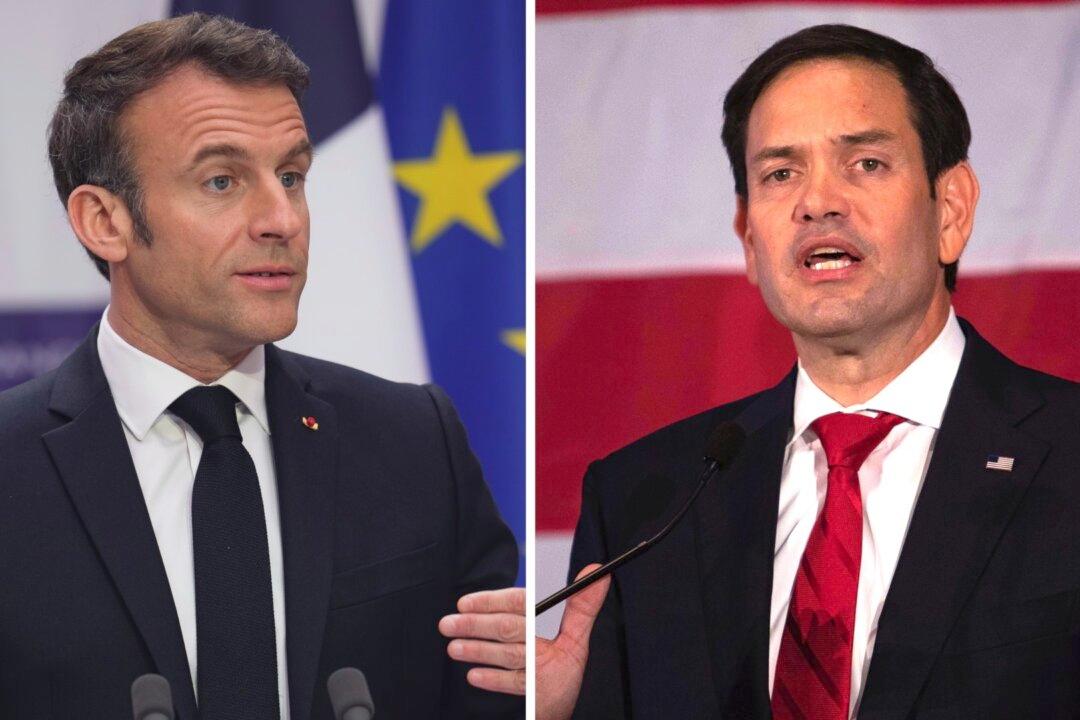Sen. Marco Rubio (R-Fla.) has condemned French President Emanuel Macron for appearing to advocate that Europe should distance itself from the United States over a possible Chinese military aggression against Taiwan.
In a roughly two-minute video posted on Twitter Sunday, Rubio asked whether Macron “speaks for all of Europe” when he suggested that the EU should not pick sides between the United States and China over Taiwan, further arguing European nations should “break away” from the United States and avoid getting involved in crises “that are not ours” to build Europe’s “strategic autonomy” concept.





